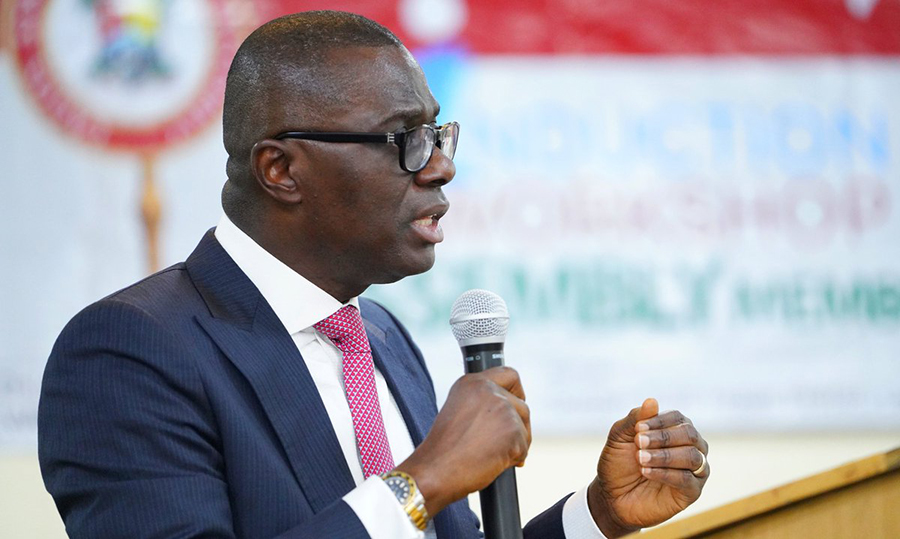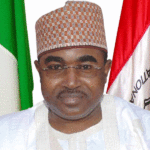Last week, Lagos State Governor Babajide Sanwo-Olu, accompanied by several top officials of the state government, went on a test ride on the Lagos Blue Rail Mass Transit from the National Arts Theatre to Marina. The test run, coming only a few months before the 2023 general elections in which Governor Sanwo-Olu is a candidate for a second term, is supposedly the fulfillment of the governor’s promise in 2021 that by the end of 2022, Lagos “will have two rail lines operational”.
The Lagos Blue Rail Mass Transit (LRMT) is a major part of the Strategic Mass Transit Plan (STMP) for Lagos, developed by the Lagos Metropolitan Area Transport Authority (LAMATA) to ease commuting in Lagos and strengthen its position as Nigeria’s commercial and industrial hub.
The project comprises seven colour-coded lines, including the Blue Line (Mile 2 to Marina); Red Line (Agbado to Marina via Iddo and Murtala Mohammed International Airport); Purple Line (Redeemed to Ojo); Yellow Line (Otta to Iddo); Brown Line (Mile 12 to Marina); Orange Line (Redeemed to Marina) and Green Line (Marina to Lekki). The Blue line alone will be 27km long, connecting Okokomaiko to Marina. When all phases are completed, the rails will run throughout the metropolitan city and also connect it to the neighbouring states of Ogun and Oyo.
While Daily Trust cannot wait for the full commencement of the project, we note that the Lagos rail project epitomizes all that is wrong with governance in Nigeria as a story of failed promises and great policy ideas never fully implemented, if at all.
Only God can cause true change in Nigeria – Okowa
NPA adjudges APM terminals best port operator
First conceived by the Lateef Jakande administration in July 1983, the project was cancelled by the military administration of then General Muhammadu Buhari, which toppled the democratically elected civilian administration of the Second Republic in 1983, thus putting the project in abeyance in the intervening years until the return to democracy in 1999.
In December 2003, the then Bola Tinubu administration in the state announced plans to reopen work on the first two lines of the project at an estimated cost of $1.4 billion with a completion date of 2007. But in 2008, following another review of the project, the Fashola administration commenced work on it which was scheduled to be completed in 2011. It was duly kicked off in 2009 by the China Civil Engineering Construction Corp (CCECC). But funding and technical challenges, the government claimed, again prevented the project from going further. The next governor of the state, Akinwunmi Ambode, promised to deliver the project by 2016, but also failed to do so, leaving the current governor, Sanwo-Olu, to get the project to last week’s test run.
If President Buhari, who cancelled the project in 1983 as military Head of State, ironically commissions it later this month as proposed, he will be commissioning a project that has been in the making for four decades. It is therefore a sad commentary on both the state government, which is often rated as the richest in Nigeria, and the federal government that such an important project was left to wallow in the doldrums for over four decades after it was first conceived.
By contrast, the Cairo Metro in Egypt, which commenced around the same time as the Lagos Rail project in 1982, commenced operations in 1987. Today, more than four million people commute on its three lines daily.
Still, it is better late than never, for the Lagos Rail Mass Transit. Lagos is undoubtedly one of the largest cities in Africa by population, with an estimated 15.4 million people, according to Statista, an online database. Yet, the city has long lacked an effective and adequate mass transit system, with an unenviable reputation of having perhaps the world’s most congested and chaotic traffic that makes nonsense of the city’s tag as Nigeria’s “Centre of Excellence”.
Therefore, that the project will serve about 250 thousand commuters daily will be a huge step in the right direction for Lagos and its residents.
While the total cost of the project has since ballooned to over $2 billion, the state government has said the project is being completed through a private-public partnership initiative which combines private-sector participation and government intervention. The private sector concessioner will run the rail equipment, electric power, signals, rolling stock and fare collection for a reported 25 years, while LAMATA will be responsible for policy direction, regulation and infrastructure for the network.
Daily Trust calls on the Lagos State government to embark on a serious mass public enlightenment to educate the public on safety measures and unauthorised access to restricted areas of the network, as well as to guard against theft, tampering and vandalisation of the network’s equipment.
We also urge the state government to put in place mechanisms for transparency and accountability in the management of the project as all too often, such projects are killed off by a lack of transparency, even where they manage to come on stream. Above all, we hope that full commencement of the Lagos Rail project will serve as a model for other cities like Abuja, Kano, Kaduna, Port Harcourt, Enugu, and Ibadan to copy.




